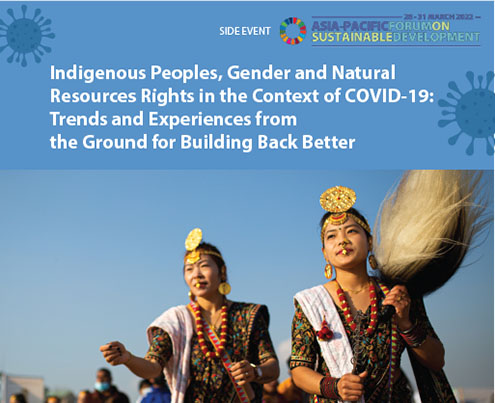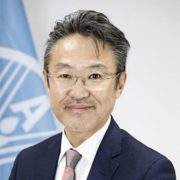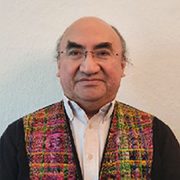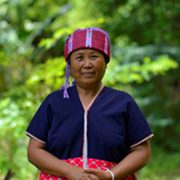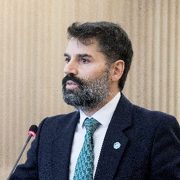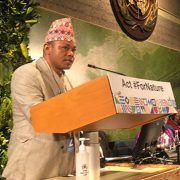30 March 2022
16.15-17.30 hrs Bangkok time
Online via Zoom application
*You will receive an email with the link to join the event.
The Food and Agriculture Organization of the United Nations (FAO), the UN Human Rights Office for South-East Asia (OHCHR) and the Asia Indigenous Peoples Pact (AIPP) have been working together to raise awareness about the importance of protecting Indigenous Peoples land, territories and resource rights in Asia, as a pathway for sustainable and equitable social-economic development that leaves no one behind.
As part of the 2022 Asia-Pacific Forum on Sustainable Development, this side event will illustrate trends and impacts of the COVID-19 pandemic on Indigenous Peoples, especially women, elaborating on how challenges can be overcome. Inspiring experiences will demonstrate Indigenous Peoples critical role mitigating the risks of future pandemics and building back better. An interactive panel discussion will help generating a set of recommendations on areas for action.
Speakers
Welcome and introduction
Romchat Wachirarattanakornkul
Romchat Wachirarattanakornkul is the National Human Rights Officer on Climate change and Human Rights. She has been working as the regional focal point on climate change and environment for the UN Human Rights Regional Office for South-East Asia since 2019. Previously, she served the National Human Rights Commission of Thailand as the human rights officer and investigative officer of the human rights protection bureau focused on Economic, Social and Cultural Rights and Business and Human Rights.
Opening remarks
Takayuki Hagiwara
Takayuki Hagiwara joined FAO in 2003 and is currently working as the Regional Programme Leader at the FAO Regional Office for Asia and the Pacific. He has been working as a natural resources management specialist for over 25 years. During his career, he spent 17 years at the FAO Investment Centre where FAO provides technical assistance to World Bank and IFAD projects. He has prepared and implemented various projects in different areas including community-based natural resources management and livelihood development. He has conducted a number of trainings and published a farmer field school implementation guide based on his practical experiences in the field. He was the lead technical officer on the Sustainable Livelihood Development Project in Kenya’s Mau Forest Complex, which received FAO’s Edouard Saouma Award in 2013. He holds a master’s degree from Yale University’s School of Forestry and Environmental Studies.
Keynote address
Francisco Calí Tzay
Francisco Calí Tzay was appointed Special Rapporteur on the rights of indigenous peoples in March 2020 and took up the role on 1 May 2020. A Mayan Cakchiquel from Guatemala, he has represented indigenous peoples at the United Nations since the early 1980s, addressing human rights violations against the Indigenous Peoples in Guatemala and around the world. He is Maya Kaqchikel from Guatemala, with experience in defending the rights of Indigenous Peoples, both in Guatemala and at the level of the United Nations and the Organization of American States (OAS). He was founder and member of a different indigenous organizations in Guatemala and as well Ambassador of Guatemala to the Federal Republic of Germany and was President of the Committee for the Elimination of all forms of Racial Discrimination, a treaty body from which he was elected for four consecutive periods of 4 years each.
Setting the scene presentation
Katia Chirizzi
Katia Chirizzi is the Deputy Regional Representative of the UN OHCHR Regional Office for South-East Asia, which she joined in 2015. Prior to this, she worked with OHCHR in several capacities, in Nepal, Sri Lanka, the Maldives and in Geneva. Before joining OHCHR, she worked with the Organization for the Security and Co-operation in Europe in Kosovo, leading its Human Rights Division, and in Serbia. Over more than two decades, she focused her work on the protection and promotion of human rights both in conflict and post-conflict settings, including in the context of transitional justice, equality and non-discrimination, humanitarian action, land rights, business and human rights, climate change and environmental rights.
Marianna Bicchieri
Marianna Bicchieri is a human rights lawyer with extensive experience on land governance and social inclusion. She has considerable field and research based knowledge of key policy issues around gender, Indigenous Peoples rights and tenure security. Since 2005 Marianna has been working for FAO at headquarters, and across Africa and Asia. From 2007 to 2014 she lead country-based projects in Africa on women’s land rights, customary tenure and legal empowerment of vulnerable groups as Chief Technical Advisor. Since 2015 Marianna has been serving FAO as Land Tenure Officer in the FAO Regional Office for Asia and the Pacific based in Thailand. She has been leading the Asia and Pacific Tenure Security Programme, supporting countries in the region on different aspects of land governance, land related human rights and its connections with food security, gender issues, Indigenous Peoples rights and responsible investment in agriculture.
Panel discussion
Noraeri Thungmueangthong
Noraeri Thungmueangthong is a chief of Huay Ee Khang Village. She belongs to Karen Indigenous group in Thailand. She is one of the prominent Indigenous Women leaders in Thailand. She is actively engaging on women’s issues, promotion of Indigenous Knowledge and sustainable natural resource management at local and country levels. She has initiated Ker Nue Mue or Women’s forest to create natural classroom for Indigenous Knowledge transmission, food source and income generation for the people in her village.
Currently she is also the committee member of Indigenous Women Network in Thailand (IWNT).
Shobha Tirkey
Shobha Tirkey is a Ph.D. Research Scholar from Tata Institute of Social Sciences, Mumbai. An Oraon tribe from Chhattisgarh, India. She has been working on indigenous issues at the grassroots to international levels for more than 12 years. Her field of expertise includes Research and Development focusing on corporate social responsibility, sustainable development, livelihood, environment, and climate change. Her work experience encompasses, blend of Corporate, Higher Education and Grass Root Level Field. Project management and strategic planning in line with Indigenous Community Development is her expertise. She comes with an array of interests: A Gardener and A Traveller. Permissiveness in cooking and music is therapeutic process for her. Ambitious to grow as an agent to pour hopes in people’s life.
Yon Fernández-de-Larrinoa
An Agricultural Economist with a MABD on entitlements and food security, Yon Fernández-de-Larrinoa is the Head of the FAO Indigenous Peoples Unit. He joined FAO in 1998 and has worked mainly in Latin America and Asia, coordinating work in the Tsunami, Avian Influenza, Peru Earthquake and Haiti Earthquake operations. In 2010, Yon joined the Partnerships and UN relations Division leading the FAO Civil Society team, co-authoring the Strategy to engage with civil society and supporting the participation of civil society in the World Committee of Food Security. He co-founded the Pastoralists knowledge hub in FAO and started the FAO Indigenous Peoples Unit in 2014. The Indigenous Peoples Unit implements FAO policy on indigenous peoples by working on FPIC; Collective rights and Indigenous youth. In 2018 the unit launched a Global Campaign on Indigenous Women and in 2019 started the group of friends of indigenous peoples in Rome. In 2020 The Committee of Agriculture endorsed the Global-Hub on Indigenous Peoples’ Food Systems now including 16 academic, research, UN and indigenous organizations.
Closing remarks
Prem Singh Tharu
Prem Singh Tharu is a Tharu Indigenous person originally from Nepal. He has fifteen years of experience in the human right-based development fields particularly on child rights, Indigenous Peoples rights, human rights, conflict management and peace building, education, livelihoods, youths, disability, and environment in different capacities at various organizations. He has been recently working with Asia Indigenous Peoples Pact (AIPP) in the capacity of Environment Programme Officer based in Chiang Mai, Thailand since 2016. Academically, he has completed his Masters’ Degrees in anthropology from TU, Nepal and in law from NUIG, Ireland.

